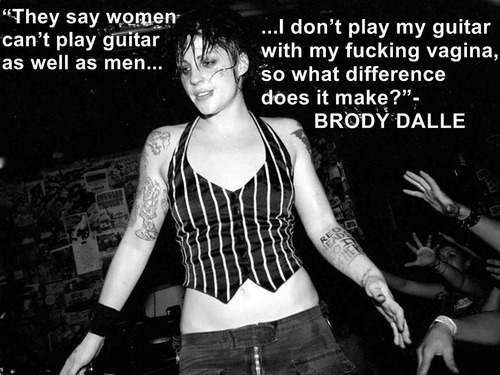I need to start this post with the disclaimer that I have small boobies. If you read this and think "what does she know sitting there with her B cups" I am aware this whole process has been easier because I have a small chest. And I am by no means saying everyone should stop wearing all kinds of bras, more asking you to consider WHY we wear underwired, padded, push-up, cleavage-boosting ones. Are we all on the same page? Good. Off we go, then.
My first ever bra was, I think, a 28AAA. Seriously. It wasn't even a bra; it was a bra-shaped crop top. My mum got it for me because, at 13, I really didn't have any breasts at all but felt self conscious about not wearing a bra in P.E; my crop tops felt childish. Like a lot of girls, I think, I grew up thinking breasts were the ultimate sign of femininity and that NOT having breasts meant I was less of a girl. Eventually I got enough in the breasticles department to fill a cup that wasn't a made up size and off I went and I never looked back.
A few years ago I finally came to terms with how much I fucking hate bras. They've never fitted me properly even after being professionally measured, they always seemed to make my boobs hurt all the freaking time and despite being fairly thin I always got that weird mini fat roll between my bra-encased breasts and my arms that made me feel ugly and fat and self conscious. “But I can't stop wearing them!” I thought. “That would...just be WRONG. Everyone wears a bra! What would people THINK. What would they SAY.” I struggled on. Then, just over a year ago I decided I didn't give a rat’s ass what people think. I’m uncomfortable enough in my body from the pain of my chronic health condition, without voluntarily adding extra discomfort. So I took the plunge and I did not wear a bra. And no one said a goddamned thing.
Without a bra, I felt free. My boobs stopped hurting. The level of comfort I now experienced was just...indescribable. But more than that, I felt powerful. For so long I wore a bra because I thought that, as a woman, it was what was expected of me. It was part of the social contract. And going against that, and feeling better for it, made me feel strong. I started to wonder why I'd even started wearing one in the first place. I'd not needed the support because of back pain, so why had I bothered?
Because I felt like I was supposed to. Wearing a bra was a sign I was a woman, like starting my period or growing pubic hair, it was a sign that I had Made It. I was part of the club. And I started to feel like the only reason I ever wore a bra was, not because I needed to, but because everyone else needed me to. Because it was expected that my breasts sit at a certain place on my chest and be a certain shape and not move very much and, heavens forbid, never suggest I have nipples. And the more I thought about it the more I felt I'd been duped. I'd been wearing these godforsaken things for a decade and I really didn't need to.
Aside from this, there’s also the issue that the fashion industry expects your breasts to be within a certain size range, and if yours fall either side of this range, you’re punished by being offered bras that aren’t pretty, or sexy, or whatever it is you like to see in a bra, and instead are boring (or ugly) and often expensive, with limited options on offer in limited places. No fair.
Obviously, bras have many practical applications. I know many of us breast-bearers opt for bras for a range of reasons, and going totally braless is not necessarily an option for all. I do think that when we think 'bra' we think of the underwired variety, probs with a bit of padding for maximum boobage and to guarantee nipple coverage on even the coldest of days, and designed to hoist our breasts up to their socially desirable position about an inch below our chins. Boobies are not supposed to go this way. If they were, that's where they'd be already. The point of this post is more to get us to think about what we put our boobs in, rather than just reaching for what we've always reached for. There's bras without underwire, sports bras, camisoles with built-in support cups. Regular camisoles. And yes, going totally braless.
So next time you try on a totally amazing top or dress, but are going to leave it in the changing room because "I can't wear a bra with it" try it on without one. I bet you look bangin'.
My first ever bra was, I think, a 28AAA. Seriously. It wasn't even a bra; it was a bra-shaped crop top. My mum got it for me because, at 13, I really didn't have any breasts at all but felt self conscious about not wearing a bra in P.E; my crop tops felt childish. Like a lot of girls, I think, I grew up thinking breasts were the ultimate sign of femininity and that NOT having breasts meant I was less of a girl. Eventually I got enough in the breasticles department to fill a cup that wasn't a made up size and off I went and I never looked back.
A few years ago I finally came to terms with how much I fucking hate bras. They've never fitted me properly even after being professionally measured, they always seemed to make my boobs hurt all the freaking time and despite being fairly thin I always got that weird mini fat roll between my bra-encased breasts and my arms that made me feel ugly and fat and self conscious. “But I can't stop wearing them!” I thought. “That would...just be WRONG. Everyone wears a bra! What would people THINK. What would they SAY.” I struggled on. Then, just over a year ago I decided I didn't give a rat’s ass what people think. I’m uncomfortable enough in my body from the pain of my chronic health condition, without voluntarily adding extra discomfort. So I took the plunge and I did not wear a bra. And no one said a goddamned thing.
Without a bra, I felt free. My boobs stopped hurting. The level of comfort I now experienced was just...indescribable. But more than that, I felt powerful. For so long I wore a bra because I thought that, as a woman, it was what was expected of me. It was part of the social contract. And going against that, and feeling better for it, made me feel strong. I started to wonder why I'd even started wearing one in the first place. I'd not needed the support because of back pain, so why had I bothered?
Because I felt like I was supposed to. Wearing a bra was a sign I was a woman, like starting my period or growing pubic hair, it was a sign that I had Made It. I was part of the club. And I started to feel like the only reason I ever wore a bra was, not because I needed to, but because everyone else needed me to. Because it was expected that my breasts sit at a certain place on my chest and be a certain shape and not move very much and, heavens forbid, never suggest I have nipples. And the more I thought about it the more I felt I'd been duped. I'd been wearing these godforsaken things for a decade and I really didn't need to.
Aside from this, there’s also the issue that the fashion industry expects your breasts to be within a certain size range, and if yours fall either side of this range, you’re punished by being offered bras that aren’t pretty, or sexy, or whatever it is you like to see in a bra, and instead are boring (or ugly) and often expensive, with limited options on offer in limited places. No fair.
Obviously, bras have many practical applications. I know many of us breast-bearers opt for bras for a range of reasons, and going totally braless is not necessarily an option for all. I do think that when we think 'bra' we think of the underwired variety, probs with a bit of padding for maximum boobage and to guarantee nipple coverage on even the coldest of days, and designed to hoist our breasts up to their socially desirable position about an inch below our chins. Boobies are not supposed to go this way. If they were, that's where they'd be already. The point of this post is more to get us to think about what we put our boobs in, rather than just reaching for what we've always reached for. There's bras without underwire, sports bras, camisoles with built-in support cups. Regular camisoles. And yes, going totally braless.
So next time you try on a totally amazing top or dress, but are going to leave it in the changing room because "I can't wear a bra with it" try it on without one. I bet you look bangin'.
For more from Caitlin follow her





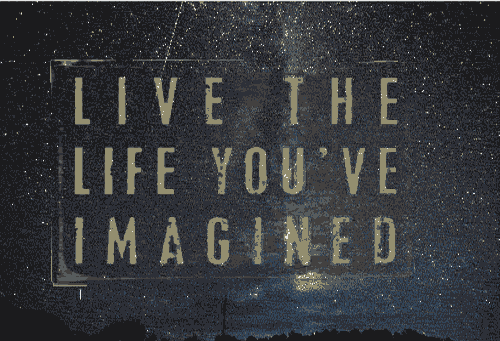
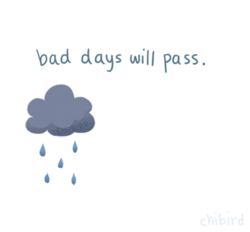









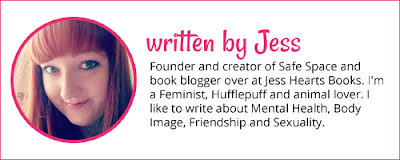
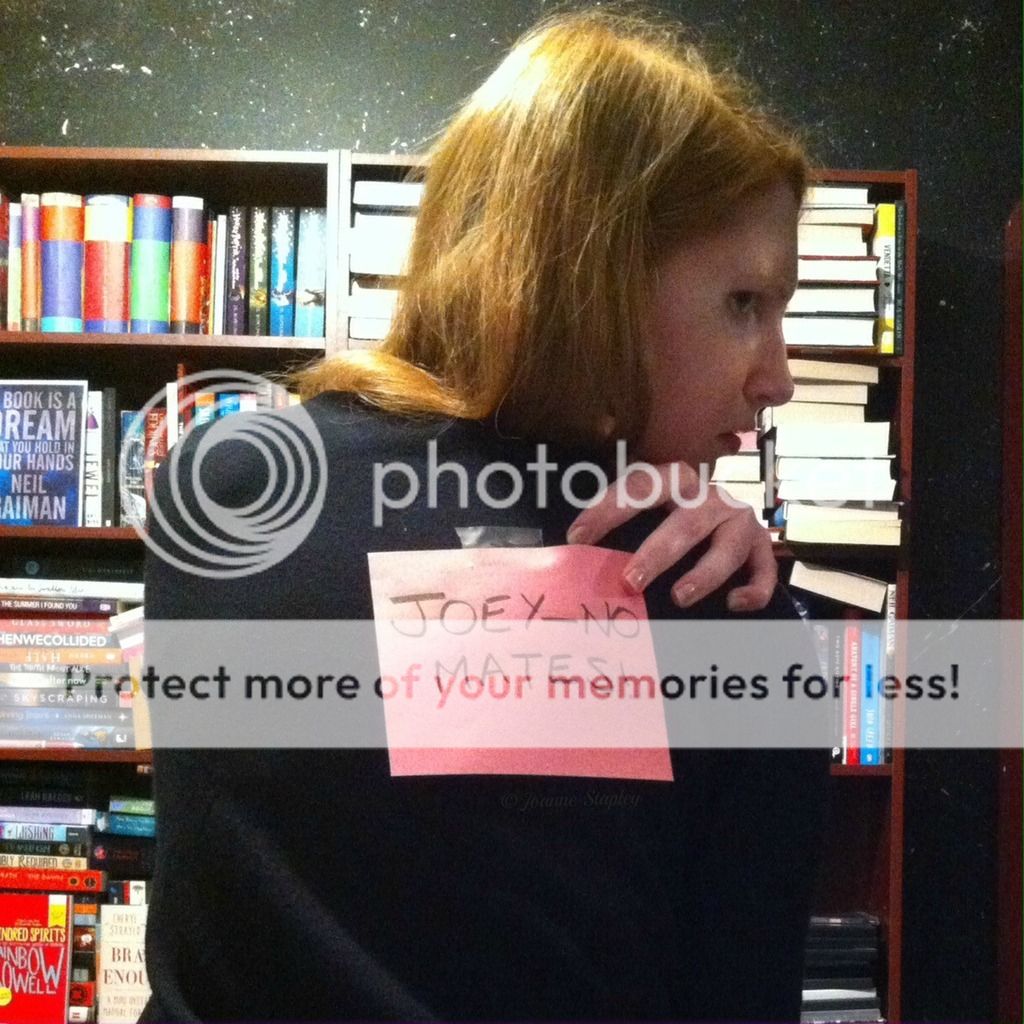 If I was to count the number of friends I have, and treat it seriously, I would not get past one. Of course, I have work colleagues I get one with, people from the YA community who I love chatting to, and friends of the family who I think of warmly. But when it comes to real friends - the kind that are there for you no matter what; who you can talk to all the time about absolutely anything; who know you inside out and back to front, all your flaws, and love you anyway; who you can confide in and be silly with and go to for assurance when you're having a wobble - of those kind of friends, I have one. My best friend. And he lives in Belfast, while I live in London.
If I was to count the number of friends I have, and treat it seriously, I would not get past one. Of course, I have work colleagues I get one with, people from the YA community who I love chatting to, and friends of the family who I think of warmly. But when it comes to real friends - the kind that are there for you no matter what; who you can talk to all the time about absolutely anything; who know you inside out and back to front, all your flaws, and love you anyway; who you can confide in and be silly with and go to for assurance when you're having a wobble - of those kind of friends, I have one. My best friend. And he lives in Belfast, while I live in London.






